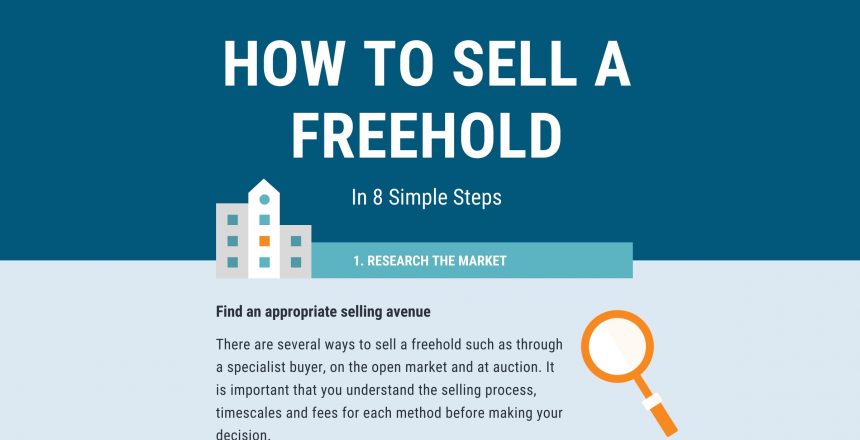- Our Services
Serve Notices
Calculators
- About Us
- Testimonials
- Resources
- FAQs
- Contact Us

When it comes to selling any type of property, most sellers desire a quick sale or at the very least, a smooth and hassle-free sale process. Though, as many of us are all too aware, this desire is very rarely satisfied. Instead, we’re left sending copious amounts of emails and making endless numbers of phone calls to chase those involved with the sale. And much like a dog chasing his tail, we never seem to get anywhere or achieve anything significant with our efforts, other than becoming dizzy with stress.
Fortunately, the typical complications that can occur with a freehold property sale can be largely prevented if you first understand how the freehold sale process works and secondly, choose the right selling avenue for your requirements. Selling a freehold is very similar to a typical residential property, however, there is a range of different legalities and procedures involved with the disposal. So, it’s undoubtedly highly beneficial and very wise to get to grips with exactly how to sell a freehold before making any moves.
So, let’s get started. Here is my guide for how to sell a freehold in 8 simple steps.
There are several ways that you can sell a freehold, such as through a specialist freehold buyer, on the open market, or at public auction. As each of these offers different sale processes, time scales, and fees, it’s important to research the market and understand their processes for how to sell a freehold. You can then determine which selling avenue will meet your requirements for the disposal of your freehold interest
2. Obtain quotes or valuations from freehold buyers
No matter which selling avenue you choose, it’s likely that each company will value your freehold differently. This can sometimes mean a disparity of thousands of pounds, which could see you really lose out on extra capital. So, always contact a few different companies to obtain a valuation or their guide price for your freehold before making any decisions. Most companies will provide you with this for free, whereas a surveyor may cost you thousands and can commonly overvalue freeholds, making them difficult to sell.
3. Collect arrears from leaseholders
Although it may be possible to sell your freehold along with any ground rent or service charge arrears, you may not receive any money for them from the buyer as chasing debts can be costly. Therefore, if you’re in the position to do so, it may be fruitful to attempt to collect outstanding payments from your leaseholders. For ground rent, you can demand arrears for up to six previous years using a Section 166 Demand Notice. For service charge demands there are strict time limits and procedures that must be adhered to. Find out more here
4. Find a solicitor to deal with the legal paperwork
As with any property sale, you’ll need a qualified conveyancing solicitor to take care of the legal side of things on your behalf. It’s wise to use a solicitor that is experienced in freehold property matters to ensure that the transaction goes through without a hitch.
5. Serve notice to qualifying tenants (leaseholders)
If your property and tenants (leaseholders) qualify for the Right of First Refusal, you will need to serve Section 5 Notices to offer them the chance to purchase the freehold collectively before another party. To qualify, both the leaseholders and the property will need to meet certain criteria as dictated by the Landlord and Tenant Act 1987. Discover if you qualify for the Right of First Refusal here.
6. Follow legal time limits for selling freehold ground rents
There are various time scales and processes to adhere to for the Right of First Refusal, which differ depending on the selling avenue chosen. Furthermore, the Notice that you issue will also vary, with private sales requiring a Section 5A Notice and auction sales requiring a Section 5B Notice. As this is a legal requirement, it’s critical to seek professional advice if you’re unsure about what’s involved.
7. Sale progression and the Right of First Refusal
If leaseholders do not accept the Right of First Refusal, you can proceed with the disposal of your freehold using the selling avenue stated in the Section 5 Notice. You must continue with the disposal under exactly the same terms as stated in the Notice for the next 12 months, or you will commit a criminal offence. Conversely, if leaseholders do not qualify for the Right of First Refusal, you can sell your freehold however you like without having to involve the leaseholders.
If leaseholders do accept the Right of First Refusal offer, you can progress the sale as follows:
For a private sale, you can instruct your solicitor to prepare and issue the necessary documents and issue them to your freehold buyer.
For a sale by auction, once the legal time scales have elapsed, you can place the freehold into the auction for the public to bid on. If the reserve price is achieved or greater, the successful bid will determine the sale price for which the freehold will be offered to the leaseholders. If they do not accept, the sale can progress with the successful bidder from the auction.
In the unfortunate event that the successful bidder withdraws, or the freehold does not sell at auction, the Right of First Refusal procedure will need to be started afresh. This will mean the service of new Section 5B Notices, should you wish to continue with the auction route. However, if you decide to sell privately, you’ll need to serve Section 5A Notices and follow the procedures set out by the Landlord and Tenant Act 1987, which dictates how to sell a freehold legally
8. Sale completion
Once the sale has completed, it is advisable to ensure that the new landlord serves a Section 3 Notice to leaseholders to provide their contact information. Failing to do so will mean that you remain liable for breaches of covenants and can therefore be subject to legal action. This Notice must be served by the new freeholder regardless of whether you provide the new contact details to your leaseholders.
Learning what’s involved with how to sell a freehold may make the process seem somewhat complicated at first, but as long as you do plenty of research, choose the right selling avenue, solicitor and seek professional advice where needed, you shouldn’t experience any problems.


For free, friendly, and professional advice on how to sell a freehold, contact our experienced team on 01245 227 920 or email [email protected]

Adam has worked in the property sector for 20+ years. He specialises in the ground rent and freehold reversion space, providing services to clients from private landlords to corporate investors. Freehold Sale launched In 2013 where Adam enjoyed success building and managing freehold portfolios with partner companies.